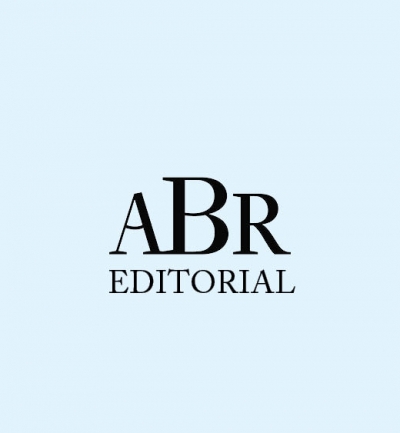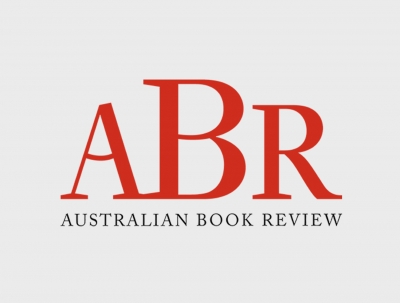Editorial
In 2013, Australian Book Review broadened its review content to include the arts. Since then we have reviewed theatre, film, opera, music, dance, and the visual arts – not just literature. This development was in response to the decline of arts criticism in our newspapers and in recognition of our readers’ eclectic interests.
... (read more)In June 2014, before he became prime minister, Malcolm Turnbull – then minister for communications in the Abbott government – addressed the imposingly named ‘CEDA National Annual Conference – State of the Nation’. His paper was titled ‘Australia Post in the Digital Age’.
... (read more)Welcome to a special Indigenous issue of ABR. The timing feels momentous, two weeks out from a referendum which will decide whether there will be a new body within the Australian parliament advising on Indigenous concerns and interests: an ancillary instrument acknowledging Aboriginal peoples’ long-standing custodianship of land and the ongoing, adverse effects of colonisation.
... (read more)Fifteen years ago, the new Rudd government announced the creation of the Prime Minister’s Literary Awards (PMLAs), to be administered by the Minister for the Arts. There were two prizes at the outset – fiction and non-fiction – each worth $100,000 – tax free to boot. Given the precarious incomes of most Australian writers, the prizes could not have been more welcome. Later, after some lobbying, young adult and children’s fiction were added, followed by poetry and Australian history. Sensibly, like other literary prizes, the PMLA organisers decided in 2011 to reward all the shortlisted authors, not just the winner.
... (read more)There are times when the act of editorialising seems reckless, if not otiose. Any such column, written on 20 September, runs the dual risk of belatedness – or prematurity. So appalling were the events of 11 September, and so ominous their ramifications, no one can be confident of the likely international developments in coming weeks, days, or even hours. All we can do at ABR is to sympathise with the families of those killed in New York, including a number of Australians, while also following events and covering the issues and inevitable publications in these pages.
... (read more)In this issue, Hugh Mackay replies to Richard Hall’s essay in last month’s issue and his reply is printed here in full, unedited, at his insistence – which was communicated to me by his lawyers. As a matter of principle, of course, ABR offers right of reply, which is indeed a regular feature of the magazine, most commonly through the letters to the editor. On this occasion, given Hugh Mackay’s insistence, ABR includes his 3,300-word reply as a special feature.
In his reply, which he calls a ‘rebuttal’, Hugh Mackay points out that The Mackay Reports are not ‘books’ and therefore wonders ‘why they got a run in ABR’. I am interested that Hugh Mackay appears puzzled that matters not in ‘book’ form should come into the domain of ABR.
... (read more)The forbearance of those writers who entered the Australian Book Review and Reader’s Feast Short Story Competition has been as exemplary as their commitment to short fiction. I am pleased to be announce the shortlist:
Ian McFarlane: ‘A Balance of Probabilities’
Katarina Mahnic: ‘Flying Recipe’
B.E. Minifie: ‘There Has to be a Resemblance’
Carrie Tiffany: ‘Dr Darnell’s Cure’
Susan Yardley: ‘The End Is Where We Start From’
... (read more)I has sworn, in my editorial capacity, not to reinforce or allow to be reinforced, by word or deed, the old Sydney vs. Melbourne scenario in the pages of this magazine; but I realised very quickly that this was a case of one’s reach exceeding one’s grasp. The construction of this inter-city relationship as ‘St Petersburg or Tinsel Town?’, with its suggestion of two (and only two) opposing superpowers and its implication that one must make the choice, has – however you might feel about it – an imaginative force before which one can only bow. Several recent items in ABR have drawn on the two cities’ perceived differences in order to make points about the books or ideas under discussion (see, for instance, Rob Pascoe’s review of Frederic Eggleston and Intellectual Suppression in this issue); Jim Davidson has produced The Sydney Melbourne Book as heralded in last month’s ‘Starters & Writers’; the ‘opposition’ model seems to be a powerful figure in the national literary rhetoric.
... (read more)What a difference a month makes! In late March, as we were sending the April issue to press, how bleak the outlook was here in Australia, but especially overseas. Future print editions seemed doubtful because of the scale of the threat and the imminent lockdown.
... (read more)After a summer of bushfires across the nation and phenomenal loss and destruction, Australia – like the rest of world – now faces a health crisis of fearsome scope. As we go to press (earlier than planned because of present uncertainties), the scale of the threat, unprecedented in our times, is becoming stark.
... (read more)




